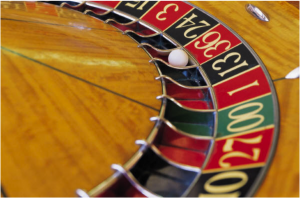
Turn off the lights!
I’m currently listening to an audio book that describes, in great detail, life in the 1700s. No television, computers, cell phones or electric light bulbs. People generally went to bed after dark and got up at sunrise. Candles were used but even then people’s sleeping patterns were more in tune with their circadian rhythms than today. Where people once averaged 10 hours of sleep a night, now the average is around six.
Our modern lifestyle allows us to cram more and more into each day. Lights that burn day and night, flickering computer and television screens, not only in offices but in bedrooms, and a schedule that often makes getting even 6-7 hours of sleep a luxury. What is this doing to our biochemistry?
A recent paper from Rockefeller University looked at how artificial lighting changes our 24-hour circadian rhythm. Mice were placed into an environment that had a 20-hour day instead of the standard 24. Six weeks later these mice had gained weight, were more reckless in their behavior and were less flexible mentally than the mice that had stayed on the 24-hour cycle.
Another interesting study, published in the journal Neuroscience, states that when people don’t get enough sleep they tend to make overly optimistic decisions. This provides scientific evidence for what casino managers have long known — keep the lights flashing and the machines ringing to encourage people to keep playing until they have lost all their money.
Based on these, and other studies, we may well be playing havoc with our brains, our metabolism and overall body chemistry. Makes me think that life in the 1700s and before wasn’t so bad, at least when it comes to getting adequate sleep!
When I was first asked to do some lectures on getting better sleep in order to be more productive, my first thought was “How many people are going to attend this?” Did I get a surprise! This turned out to be a popular topic, particularly for the more mature audiences.
If you’re a typical Baby Boomer, you may be finding that it’s becoming increasingly difficult to get the amount of sleep that you need. This can be due to health issues, medications or as a normal part of aging. Not to mention the snoring of a spouse!
As we age, the various sleep stages are affected. The deeper stages are reduced and replaced with more of the lighter stages of sleep. In addition, sounds and interruptions are more likely to awaken us. Have you ever felt as if you could be awakened by a mouse tiptoeing through the room? Another aspect is that sleep tends to be spread more across the 24-hour cycle rather than just at night.
What to do?
Here are some simple tips for getting a better night’s sleep:
Create a healthy sleep environment.
— Keep your bedroom for s** and sleeping. Get rid of the piles of magazines and books, the treadmill, the TV and discussions about bills and other negative topics.
— Make sure your bedroom is well ventilated and at a comfortable temperature. The optimum temperature is 60-65 degrees F.
— Consider keeping pets out of the bedroom. Did you know that 21% of dogs snore!
— Hide the clock and the night light. Even a small amount of light will affect your body’s production of the sleep hormone.
— Use blackout curtains or blinds. If you can see your hand when you hold it up in front of your face, it isn’t dark enough.
Keep a regular sleep/wake schedule. Try not to vary it by more than one hour.
Be light-wise. Avoid excess light before bedtime but expose yourself to bright light within 5 minutes of waking.
Avoid stimulants (coffee, nicotine, colas) late in the day.
Don’t drink alcohol before bed. It may help you fall asleep but will wake you up later on when it’s being metabolized by the body.
Don’t exercise or eat heavily before bed.
Don’t nap after 3:00pm. It may undermine your nighttime rest.
Numerous studies have been done around the topic of whether we actually need less sleep as we age. A recent UK study seems to indicate that this is in fact the case. So if you’re sleeping less than 8 hours a night, it may just be a natural consequence of aging.

